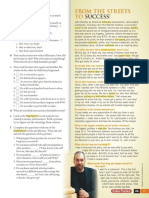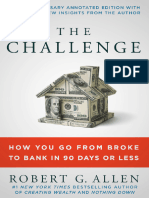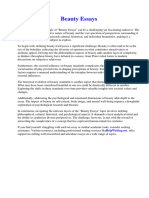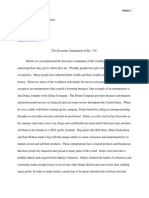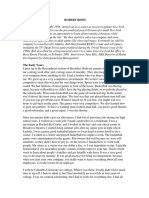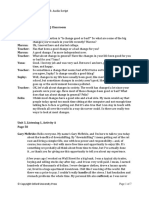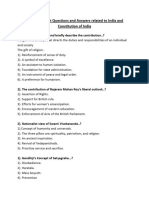0% found this document useful (0 votes)
86 views11 pagesJeffrey Skoll: Promoter of Change
The document discusses influential figures like Jeffrey Skoll, who transitioned from a desire to be a writer to becoming a billionaire and philanthropist, promoting social change through his foundation and film production company. It also features Barbara Ehrenreich's undercover research in low-wage jobs, revealing the struggles of workers, and highlights concerns about advertising targeting children, emphasizing the manipulative nature of using beloved characters in marketing. Overall, the document addresses themes of personal change, social responsibility, and the impact of advertising on society.
Uploaded by
lun921112Copyright
© © All Rights Reserved
We take content rights seriously. If you suspect this is your content, claim it here.
Available Formats
Download as DOCX, PDF, TXT or read online on Scribd
0% found this document useful (0 votes)
86 views11 pagesJeffrey Skoll: Promoter of Change
The document discusses influential figures like Jeffrey Skoll, who transitioned from a desire to be a writer to becoming a billionaire and philanthropist, promoting social change through his foundation and film production company. It also features Barbara Ehrenreich's undercover research in low-wage jobs, revealing the struggles of workers, and highlights concerns about advertising targeting children, emphasizing the manipulative nature of using beloved characters in marketing. Overall, the document addresses themes of personal change, social responsibility, and the impact of advertising on society.
Uploaded by
lun921112Copyright
© © All Rights Reserved
We take content rights seriously. If you suspect this is your content, claim it here.
Available Formats
Download as DOCX, PDF, TXT or read online on Scribd
/ 11

















